Search the Special Collections and Archives Portal
Search Results
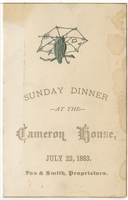
Cameron House, menu, Sunday, July 22, 1883
Date
Archival Collection
Description
Text
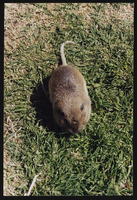
Ground squirrel at Gay Pride: photographic print
Date
Archival Collection
Description
Ground squirrel at Gay Pride at Sunset Park, 1999. Photographer: Dennis McBride. (5-8-99).
Image
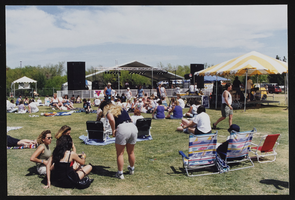
People sitting on the lawn at Gay Pride: photographic print
Date
Archival Collection
Description
Gay Pride at Sunset Park (5-8-99) Photographer: Dennis McBride
Image
Maxine Butler oral history interview
Identifier
Abstract
Oral history interview with Maxine Butler conducted by Frank Johnson on April 22, 2016 for the African Americans in Las Vegas: a Collaborative Oral History Project. In this interview, Butler discusses her early life in Jonesboro, Louisiana. She talks about moving to Las Vegas, Nevada in 1965, the Westside, and businesses on Jackson Street. Butler recalls working at The Cove as a cocktail waitress, the reopening of Moulin Rouge Hotel, and the African American community on the Westside. Later, Butler discusses her involvement at Greater Evergreen Missionary Baptist Church, the importance of church to the African American community, and compares church life in Jonesboro and Las Vegas. Lastly, Butler talks about changes in the Westside.
Archival Collection
Harry Mortenson oral history interviews
Identifier
Abstract
Oral history interviews with Harry Mortenson conducted by Claytee D. White on April 08, 2014, April 22, 2014, and May 06, 2014 for the Boyer Early Las Vegas Oral History Project. In the first interview, Mortenson discusses his personal background, working at Los Alamos National Laboratory in New Mexico, and arriving to Nevada to work as a nuclear physicist at the Nevada Test Site. Mortenson describes his work and recalls anecdotes from his employment. He then talks about his company, Sigma Scientific, and explains the different projects where he worked as a consultant. In the second interview, Mortenson discusses the methods of transportation used to arrive to the Nevada Test Site, his involvement with different organizations, and his tenure in the Nevada State Legislature. In the final interview, Mortenson discusses the device he built to take photographs of the nuclear reactor cores at Las Alamos National Laboratory, and explains how that device worked.
Archival Collection
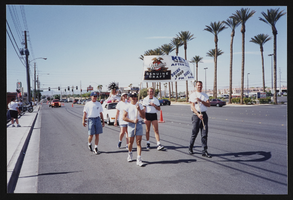
Keys Lounge in the Gay Pride parade: photographic print
Date
Archival Collection
Description
Gay Pride 1999 at Sunset Park; Photographer: Dennis McBride. Keys Lounge.
Image
Jessica Guiao oral history interview
Identifier
Abstract
Oral history interview with Jessica Guiao conducted by Grecia Lopez on November 22, 2022 for the Reflections: the Las Vegas Asian American and Pacific Islander Oral History Project. In this interview, Guiao recalls her childhood in Hayward, California, and being raised in Las Vegas, Nevada. She recalls not liking the climate of Nevada at first, and describes the friends she has made throughout her time in the city and the identity she has developed. Guiao discusses some of the pressures and stereotypes surrounding Asian Americans, such as what career path they should pursue or the aversion to embracing subcultures, and how she has consolidated her rebellion into her own identity. Throughout the interview, Guiao touches on other topics such as Filipino food, the long-standing history between Mexican and Filipino communities, Catholicism, goth culture, and anti-Asian hate and racism that she and her family has faced.
Archival Collection
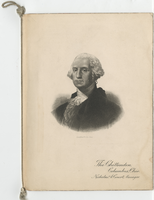
Washington's birthday menu, Sunday, February 22, 1903 at the Chittenden
Date
Archival Collection
Description
Text
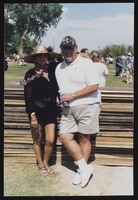
Bee and Peter Tadora at Gay Pride: photographic print
Date
Archival Collection
Description
Image
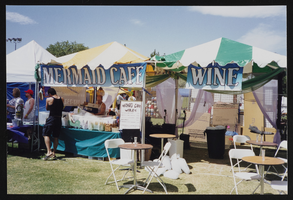
Mermaid Café booth at Gay Pride: photographic print
Date
Archival Collection
Description
Image
